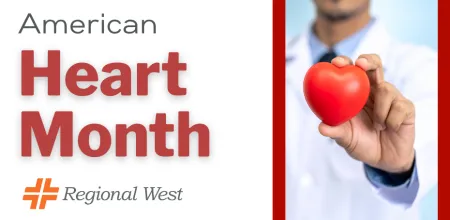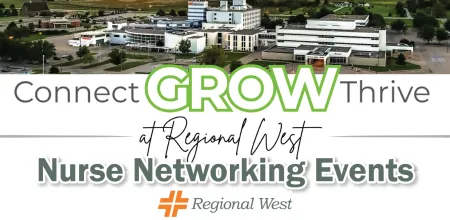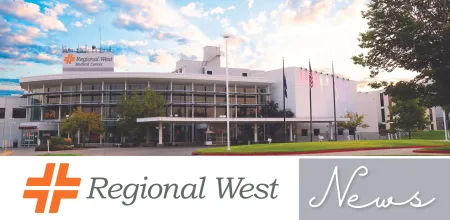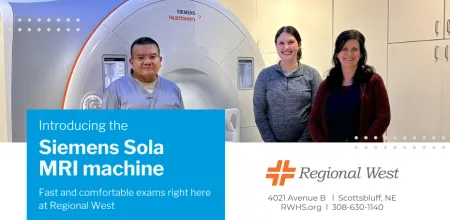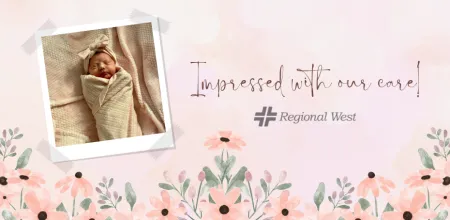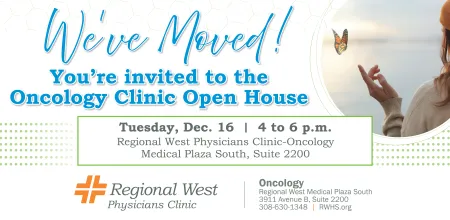February 14 is National Donor Day. Give the Gift of Life.
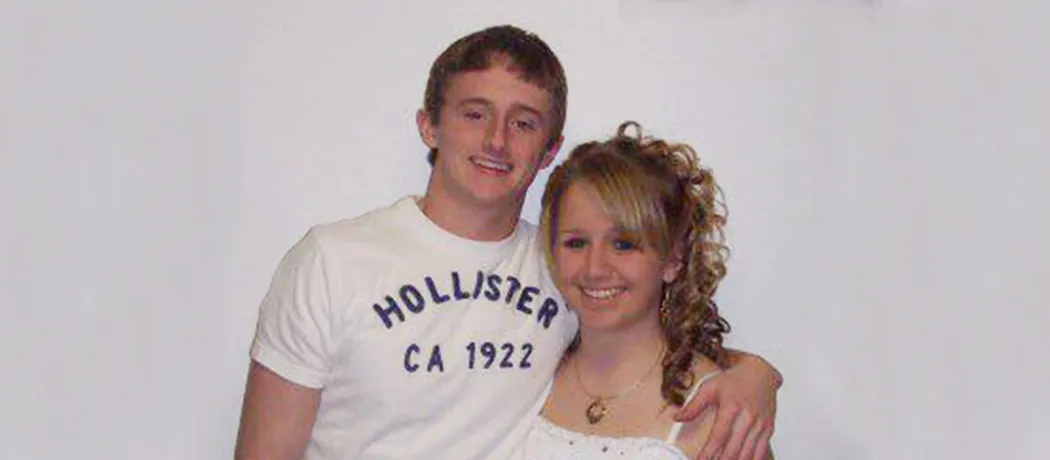
SCOTTSBLUFF, Neb., ― During his medical residency, Regional West surgeon Rommie Hughes, MD, frequently participated in organ retrieval missions as part of the University of Nebraska Medical Center’s transplant program. Two or three times a month, he would accompany a surgeon to various cities and towns to assist in surgery to recover hearts, livers, kidneys, and other organs and tissue so other lives could be saved.
As a general surgeon at Regional West Medical Center, he continued to perform organ retrieval following the deaths of regional residents who had generously registered as organ donors.
On more than a few occasions, he counseled families as they considered organ donation for deceased relatives.
Then in March 2010, his 19-year-old nephew was killed in a car accident and Dr. Hughes found himself counseling his own sister and brother-in-law about donating their son’s organs.
“I always felt strongly about organ donation. Now I have more empathy for people in the situation,” said Dr. Hughes.
In recognition of National Donor Day on February 14, Regional West encourages all families to discuss organ donation. Making the decision for yourself in advance makes it easier for your family during a difficult time. Registering as a donor ensures your decision to become a donor is carried out upon your death.
“Organ donation is the ultimate pay-it-forward gift,” said Dr. Hughes. “The average wait time is numerous years. Thousands of people who would otherwise live a normal life are facing a shortened life due to the unavailability of organs.”
Although he died tragically, Garrett Schlichtemeier, Dr. Hughes’ nephew, saved six lives through the gift of organ donation. His lungs went to a 64-year-old man and his heart, to a 21-year-old man. One kidney was given to a 5-year-old girl and the other kidney and pancreas to a 34-year-old female. His small bowel went to a 27-year-old single mother with three children, including a six-month-old. His liver went to a 62-year-old male.
“There is no downside to organ donation. It doesn’t change funeral arrangements, the presentation of the body, and there is no cost involved for the donor’s family,” said Dr. Hughes.
Currently, there are more than 115,000 patients waiting to receive a lifesaving organ transplant, and countless others are in need of cornea, tissue, bone marrow, blood, and platelet donation.
Organ Donation
- Anyone can be a potential donor regardless of age, race, or medical history.
- All major religions in the United States support organ, eye, and tissue donation and see it as the final act of love and generosity toward others.
- If you are sick or injured and admitted to the hospital, the number one priority is to save your life. Organ, eye, and tissue donation can only be considered after you are deceased.
- When you are on the waiting list for an organ, what really counts is the severity of your illness, time spent waiting, blood type, and other important medical information, not your financial or celebrity status.
- An open casket funeral is possible for organ, eye, and tissue donors. Through the entire donation process the body is treated with care, respect, and dignity.
- There is no cost to the donor or their family for organ or tissue donation. No expense is incurred by the family from the time of the declaration of brain death to the release of the body by the organ donation program to the mortuary.
- To ensure your decision to become a donor is carried out sign up online with the Nebraska Donor Registry: http://www.nedonation.org/register-now.
- Indicate your wishes on your driver's license or state ID when you apply for or renew it. Nebraska does not require family consent to carry out your decision to be an organ, eye, or tissue donor. However, keeping everyone informed will help avoid any confusion or delays.
Regional West Health Services in Scottsbluff, Neb., is the parent company of Regional West Medical Center, a 188-bed regional referral center and one of three Level II Trauma Centers in the state. As the region’s only tertiary referral medical center, Regional West offers care that spans more than 32 medical specialties provided by over 28 physician clinics. With nearly 300 providers, and over 2,000 employees, Regional West provides comprehensive and innovative health care services for the people of western Nebraska and the neighboring states of Colorado, South Dakota, and Wyoming.
